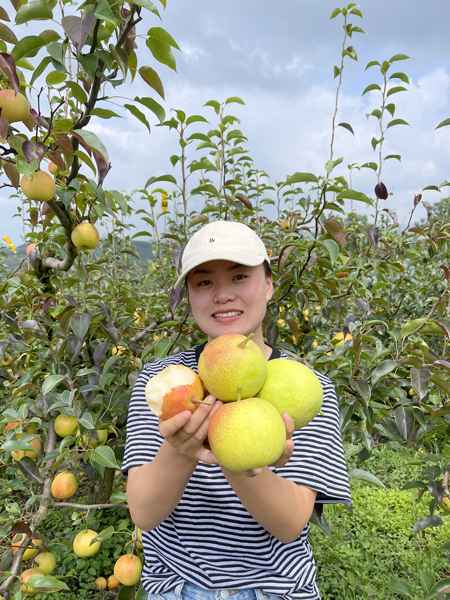Lu's recipe for empowerment


Lu's journey was far from easy. As a newcomer to the food industry, she initially believed that using quality ingredients, maintaining a clean production environment, and being responsible for her products and customers would be sufficient for success.
However, as her customer base expanded and her company grew, Lu came to understand the complexities of the business world.
"Being a female entrepreneur is tough enough. With just a middle school education, I've faced plenty of setbacks and detours along the way," she said.
By 2019, Lu's brand had made significant progress in the market. As she was preparing to open a physical store, a former partner reported her to the local administration for market regulation, accusing her of infringing on the partner's trademark rights. It was then that Lu discovered her trademark had been maliciously registered by this partner shortly after she founded her company.
To prevent further losses, she had to pay 60,000 yuan ($8,454) to reclaim her trademark.
In 2020, her newly renovated factory was intentionally damaged. Due to limited funds, she had not yet installed surveillance cameras. Although she reported the incident to the police immediately, she still doesn't know who was responsible or why it happened.
"This incident hit me hard. With my family and employees not around, I had to handle everything on my own. I didn't even have time to cry and let out my frustrations," she recalled.
Despite these setbacks, Lu grew stronger over time. "Even with all the pressure, I was determined not to give up. I focused on finding solutions and ways to thrive in the business world with my team," she said.
From her early entrepreneurial efforts to obtaining a food processing license for her factory, Lu dedicated many hours traveling alone across various cities and provinces to promote her brand.
She learned about financial planning, industry regulations, and business management from the ground up.
Today, she runs a food factory with an annual output exceeding 15 million yuan, producing its own products and processing over 30 types of food for 19 brands across the country.
Lu's experience has given her a deeper understanding of the challenges faced by rural women, particularly mothers.
She pointed out that, unlike major cities like Beijing and Shanghai, where women are increasingly raising awareness, challenging social norms, and finding more business opportunities, entrepreneurship is much harder for a homemaker from rural Yunnan raising three children.
According to Lu, in her rural hometown, women's abilities are often underestimated, with many confined to household duties. "People frequently assume that men are more capable than women," she said.




































